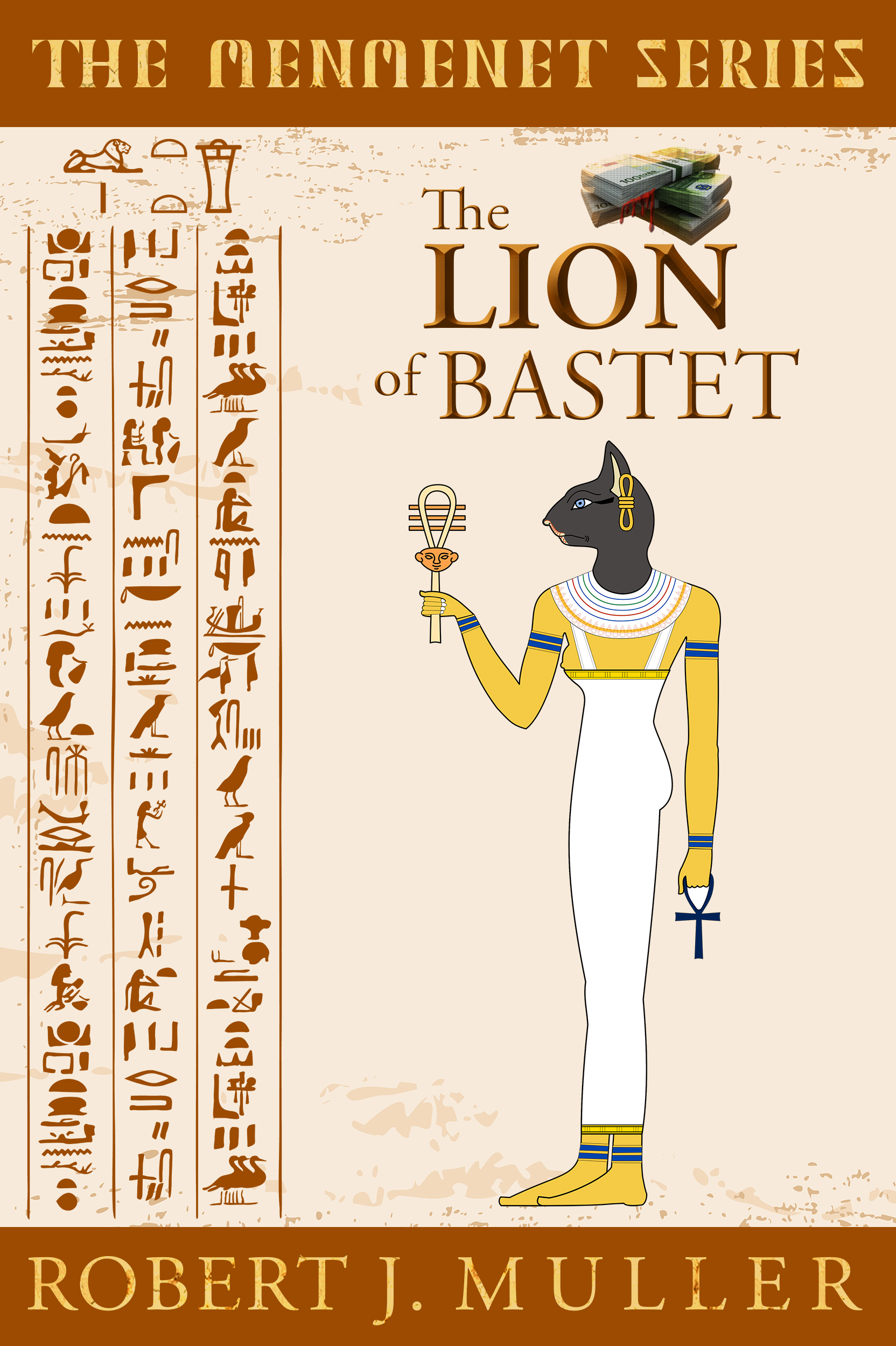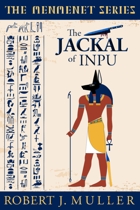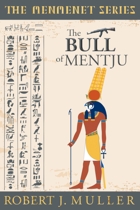The Lion of Bastet
A Menmenet Novel

In a very different San Francisco, a detective and her chef partner follow the money amidst gangsters and temple priests dead set against them finding it.
Cheryl MacIntyre aids her friend Henutsenu when the Temple of Bastet arrests her for sacrilegious murder. But in Menmenet, the temples outrank the cops. The frustrated MacIntyre puts her own life in danger as she recklessly dives into the middle of a gang war between the local Aztec mob and encroaching Russian mafias from Russkaya Amerika.
Shesmu wins the Best New Chef award from the Menmenet R’ames Society. When he tries to collect his award check, he discovers a vast swindle. The con sucks in an old family friend, and Shesmu seeks to help. Then Henet Baket revenue agents step in to accuse Shesmu himself of tax evasion and money laundering.
The two cases merge as MacIntyre and Shesmu follow the money. Then things turn dire. Russian gangsters bomb Shesmu’s restaurant. An Aztec crime lord insists MacIntyre help him fend off encroachment by mafias from Russkaya Amerika. Then the Temple of Bastet threatens to execute Henutsenu. Staying out of jail shifts to survival when gangsters, money-laundering tycoons, and corrupt police stage attacks on the pair to obstruct their pursuit of ma’at.
The second novel in the Menmenet trilogy of alternate history mysteries, The Lion of Bastet tells a story of corruption and murder in Menmenet, the capital city of the Ta’an-Imenty Republic, a country on the West Coast of North America colonized by the Egyptian Empire in the 18th century.
'“Now, what’s this about the murders? I thought I’d made the situation clear yesterday.” Hem-Netjer Paneb of the Temple of Bastet had the same air of inner certainty that he’d exhibited the day before. His frown implied he had only grown more impatient at her persistence in contradicting that certainty. More flattery might help.
MacIntyre said, “It struck me yesterday, my lord, how carefully you and the other priests care for your temple. The goddess must appreciate your efforts. A friend of mine worships here and has nothing but praise for you and the temple.”
“Thank you, Hutyt; we do our best for our goddess.” Paneb smiled with superiority and brevity. “But I cannot see—”
“It’s just that seeing that care, and being a homicide semetyt, there must be something I can do to help with your investigation. I talked to my superiors.” She would not tell him what they had said, but a little backup might help her convince him. “I could help in several ways. For example, I examined the bodies at the morgue in the Temple of Hut-Her-Sekhmet, my lord, and—”
“You what?”
“Examined the bodies. I am well known at that temple, my lord, having investigated many murders over the last two years, and they were happy to show me—”
“Who gave you permission to do that?” Paneb was, not to put it finely, steamed.
“I’m very sorry, my lord. I just felt—”
“No one gave you permission. No one asked you to do that.”
“No, my lord, but—”
“Did your superiors tell you to come here today?”
“No, my lord, but—”
“Did I not make clear that the goddess Bastet controls everything in her dominion? That the Lady does not appreciate outsiders sticking their nose in?” Now he was getting insulting.
“Now, just a minute, my lord—”
“I am sorry, Hutyt, but I must end this interview. You will remove yourself from the temple; you are not welcome here.”'








